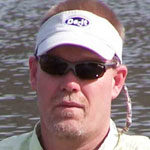
State looking into whether water authority’s actions led to kill of 5,000 fish.
The S.C. Department of Natural Resources has confirmed a fish kill on Lake Hartwell that took place the weekend of Sept. 6 near the water intake facility operated by the Anderson Regional Join Water Authority a few days after chemical treatments of water in an attempt to battle algae blooms believed to be responsible for poor taste and water quality that has plagued Anderson County residents this summer.
Billy Birdwell, a spokesman for the U.S. Corps of Engineers that operates Lake Hartwell, said the Corps received calls from local residents about dead fish washing up on the shoreline on Sept. 7.
“We are unsure if the fish kill resulted from copper poisoning, which is a major element in the algaecide that was used, or if the fish died because of lack of oxygen as the algae died off,” said Birdwell. “Our estimates indicated several hundred fish were identified, most of which were threadfin shad and carp, which are known to feed on algae.”
Birdwell said that treatment of approximately 160 acres of water in the Six & Twenty Creek area had been contracted by the Anderson Regional Joint Water Authority through Synterra Corporation of Guntersville, Ala. He also said the Corps was aware the water company was treating the water around the intake because the ARJWA had sought permission from the Corps before beginning treatment. The treatment process is expecting to continue for the next two months.
Local newspaper and television reports put the estimated number of fish killed near the 5,000 mark based on observations and reports from local residents, while Corps estimates were somewhat lower. The algae treatment used was a pilot program to target taste and odor issues that have resulted in numerous complaints from water customers. The water system reported that the program’s materials had been shown to have no measurable adverse effects on fisheries.
Anderson Regional had no comment about the fish kill until treatment is complete. The fish kill is currently under investigation by both SCDNR and S.C. Department of Health and Environmental Controls.


Be the first to comment